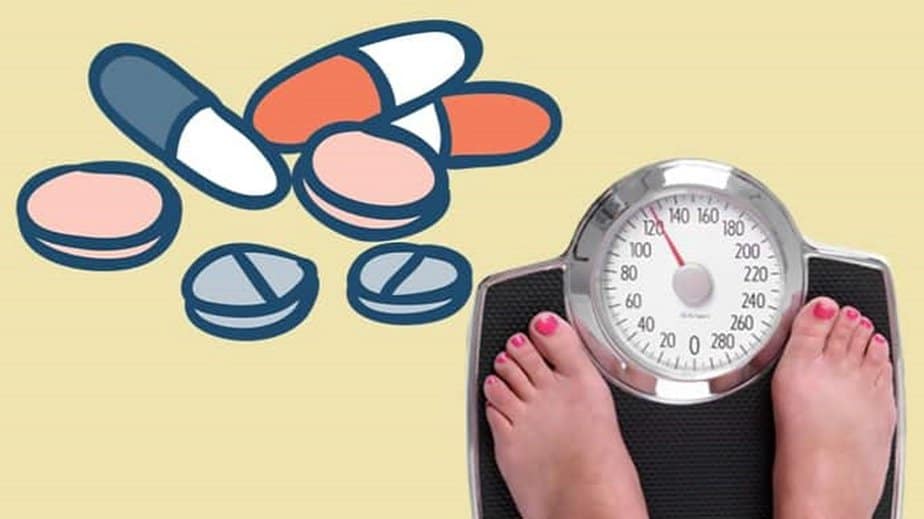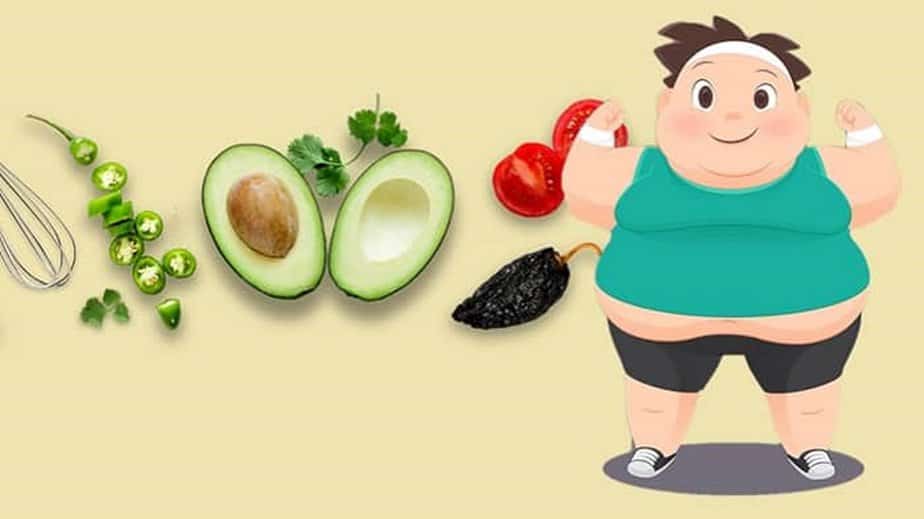Many people cannot lose weight because they rely on bad advice.
Numerous false weight-loss theories have been propagated, especially on the “internet” and in print media. These false weight reduction methods have been proven to have little effect on weight management in the long run.
Weight Loss Myths on Diet, Obesity, Carbohydrates, etc.
There is a lot of weight loss advice on the internet and elsewhere. Most of them are just myths. Misconceptions about weight loss are a serious concern for those trying to lose weight and keep a healthy weight.
The best way to lose weight is by modifying your food and exercise routines in tiny, manageable ways. If you do not know how to go about it, then choose a suitable weight loss program like Military Diet or intermittent fasting.
In this article, I want to bring to your attention the ten most common myths about weight loss that are generally thought to be true by many.
1. Weight loss supplements work for weight reduction
Weight loss supplementation is one of the most lucrative health products widely marketed.
There are many kinds of supplements claiming to help you shed multiple pounds of body weight within a matter of a few days. However, most users of such supplements have never seen long-term weight loss results.
People who desperately want to lose weight often fall prey to the marketing gimmicks of the companies selling supplements.
Of course, some of them work initially on some people because of the placebo effect and for psychological reasons. Some weight loss may also happen as most diet pill consumers become naturally conscious of what they eat.
There are a few natural weight-loss supplements that can provide modest weight-loss results.
But it must be noted here that supplements alone will only bring about a magical weight loss result if combined with healthy diets and high-intensity workouts.
2. Eat less and do more exercises to lose weight
One of the most common pieces of weight loss advice that Tom, Dick, and Harry give is to eat less food and exercise more to lose weight.
This suggestion is based on the common understanding that “to lose fat, more calories need to be burned and fewer calories are eaten.”
Weight loss occurs when calorie expenditure exceeds calorie intake by a large margin. So the common argument, “eat less and move more,” is justifiable.
However, this advice is not going to work for people who are suffering from severe obesity.
Following the above advice, one might experience weight loss during the initial period but gain more weight afterward. This happens because of certain biological and psychological reasons.
Simply eating less is not the solution, but eating the right kinds of food is important for weight loss.
Similarly, simply walking or jogging will not result in significant weight loss. To lose weight, one needs to do various high-intensity workouts routinely, and different sets of exercises need to be rotated from time to time.
“Eat less and exercise more” is an effective slogan for weight loss.
3. Eating high-fat food causes weight gain
The excess amount of fat stored in the body causes weight gain.
Fat provides around nine calories per gram, compared with only 4 calories per gram of protein or carbs.
It is logical to think that eating fat adds more to the body, leading to weight gain.
However, eating fat will not necessarily make you fat if your daily calorie intake is within the limit. Calorie-dense foods are what keep you from losing weight.
Some studies have found that low-carb, high-fat diets can cause weight loss. It contradicts the general belief that all fats are bad for weight loss.
However, a mixture of fatty foods with a high-carb and high-calorie diet, such as junk food, will certainly cause weight gain in people.
A moderate amount of fat intake does not affect weight gain, but bad fats could harm the heart’s health.
4. Skipping breakfasts is good for weight loss
Many people skip breakfast for two reasons. You may think it will help you lose weight. Indeed, it’s a serious weight loss misconception.
Many people rush to work on weekday mornings, leaving them with insufficient time to eat a hearty breakfast.
However, some weight loss studies specifically indicate that skipping meals tend to gain more weight than those who eat a healthy breakfast daily. It was also found that people who sipped breakfast had an increased tendency for binge eating and snacking in the latter part of the day.
People who eat breakfast are more likely to have healthy eating habits than those who don’t.
A protein-rich breakfast helps a person stay active with fewer hunger pangs and also helps reduce food intake during lunch and between meals.
5. Carbohydrate-rich foods are bad for weight loss
Everyone agrees with the proven fact that low-carb diets are necessary for weight reduction.
However, total rejection of carbohydrate diets is unhealthy and will not help with weight loss either.
What is important is conscious calorie restriction without upsetting the body’s daily calorie requirements. For better weight loss results, it is ideal to have a balanced mixture of high-protein and low-carb diets.
Carbohydrates are not bad for health, as humans have survived primarily on carbs since the earliest known periods of human history.
The overconsumption of refined carbs, such as processed grains and sugar, is specifically linked to weight gain issues.
High-carb “whole foods” do not cause weight gain like high-carb processed foods.
Carbohydrates are essential for the body to meet the required calorie supply, but the excess consumption of high-carb foods triggers weight gain issues.

6. “Diet” foods and beverages help with weight loss
Many packaged foods and drinks are labeled and sold as “diet foods.”
For example, you will come across food packets labeled as “gluten-free foods,” “sugar-free,” “low-fat foods,” “energy drinks,” “vitamin water,” etc.
These foods just cannot be taken at face value. The health claims and labels on them are more deceptive than their effectiveness.
Companies lie to you to sell their products. You will find no difference in weight loss even after having them regularly; in some cases, they will add more weight to your body.
Beware of foods falsely labeled “healthy.” They are just another processed food with nothing so healthy about them.
7. All calorie types cause weight gain
The calorie is a measure of the energy contained in food. Every single calorie has an equal amount of energy.
But the difference lies in the source of the calories. Calories from different sources of foods are not equally processed and absorbed by the body.
Our digestive system is quite a complex mechanism. Different types of food choose different metabolic pathways, producing different effects on the hormones that control the body weight and feeling of hunger.
For example, the effects of a protein and calorie are not the same as those of a carbohydrate or fat calorie.
The calorie from protein has a better effect on boosting metabolism and suppressing appetite than the calorie from carbohydrates or fat. The protein also helps in the enhanced functioning of hormones that regulate body weight.
The calories from whole-grain foods are more filling than processed foods. Eating fresh fruits is also a healthier option than drinking fruit juices. You can cut out high calory foods, such as refined grains and sugary drinks.
8. All fast foods are bad for weight loss
The generalization that all fast food is bad is not correct.
Many fast-food chains have a few healthy food options on their menu. Many established fast-food chains have invested a lot to cater to the needs of increasingly health-conscious customers.
Customers’ awareness of healthy and unhealthy has a lot to do with the right choice of foods.
For example, a chicken salad, a steak, or a hamburger minus the bun could be a healthy food choice at a fast-food chain.
When some people are more concerned about the cost than the food’s actual healthiness, it can adversely affect their weight loss.
Getting addicted to pizza and French fries has more to do with your weight gain than condemning fast-food chains.
9. Dieting works for weight loss
There are so many discussions and write-ups on ‘diets,’ we are just made to believe that diets work for weight loss.
Many weight-loss studies show that dieting is not a long-term option for weight management. Most people who diet experience reverse effects within a year.
People who go on diets are putting themselves in danger of gaining weight quickly when little changes are made in their daily diets.
Dieting is perfect if you are looking for fast weight loss in a short period, but in the long run, the body will stop responding to the diets, which results in weight gain.
Mindless dieting can also affect your health sooner than you imagine. To maintain a healthy body, you should be more concerned with healthy foods and lifestyles and an adequate amount of daily physical exercise rather than diets.
10. All obese people are unhealthy
There is no doubt that obese people are more susceptible to diabetes, cardiovascular diseases, cancer, and other illnesses.
However, it does not mean that all obese people are unhealthy. There will undoubtedly be several obese people who are metabolically healthy and disease-free. Many slim people suffer from diseases that are commonly associated with obese people.
All fat stores in the body are not bad. The worst fat buildup that causes metabolic diseases is belly fat and fat accumulation in and around the internal organs.
On the contrary, fat storage under the body’s skin and limbs will not cause serious health problems other than a bad appearance.
Recommended reading list:
